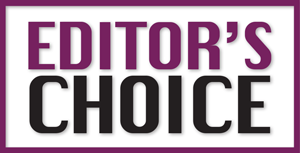
Healthcare inequalities in multicultural societies, such as the UK, are becoming increasingly apparent. They arise via a complex interplay of factors, with socioeconomic deprivation, structural biases and specific cultural and biological risk factors all contributing to disparities. There is ample evidence that ethnic minority groups experience worse health outcomes for certain conditions. The lack of culturally sensitive services and understanding in a multilingual society can also act as significant barriers to accessing and receiving appropriate care. The Covid pandemic further highlighted the disparities in healthcare availability, especially to those from black and minority ethnic groups. The Editors’ Choice this month highlights the cultural mismatch of speech and language therapy professionals in the USA with their linguistically diverse Black patients. This group of patients speak a variety of English known, amongst other names, as African American English. Unfortunately, many professionals hold negative perceptions of these types of English and this can lead to overdiagnosis of language disorders due to linguistic differences. This preconception may negatively disadvantage and isolate already marginalised members of society. The parallels to the UK are clear, with diversity being a defining feature of modern Britain. There is a need for all of us to avoid preconceptions of our patients and treat all without bias. This seems even more pertinent in the current climate of ever-changing public perceptions. The editors would like to thank all the reviewers for their hard work and contributions.
Nazia and Gaynor
The authors of this paper report on the cultural mismatches between speech and language therapists in the United States of America and their culturally and linguistically diverse patients. They report that less than 4% of speech and language therapists identify as Black. This is similar in the UK. The paper starts with a brief review of literature in this field, which has found that speech and language therapists with more negative attitudes toward linguistic diversity were more likely to identify the non-mainstream speaker as having a disorder. They highlight that in the USA many African American individuals speak a variety of English. This is known as African American English, Black English, African American Vernacular English or African American Language. Many professionals hold negative perceptions of these types of English and even describe these dialects negatively as ‘slang’ or ‘full of errors’. Importantly, this can lead to over diagnosis or diagnosis of language disorder in the context of language differences. This in turn risks disadvantaging and isolating already marginalised members of our communities. The paper highlights an urgent need for research that keeps track of changes that occur within and across generations in order to maximise linguistically and culturally relevant practice. With the recognition of the Modern London Accent as a legitimate English, this is underway but we still have a long way to go.



